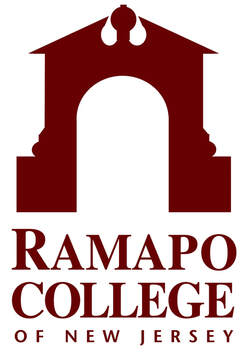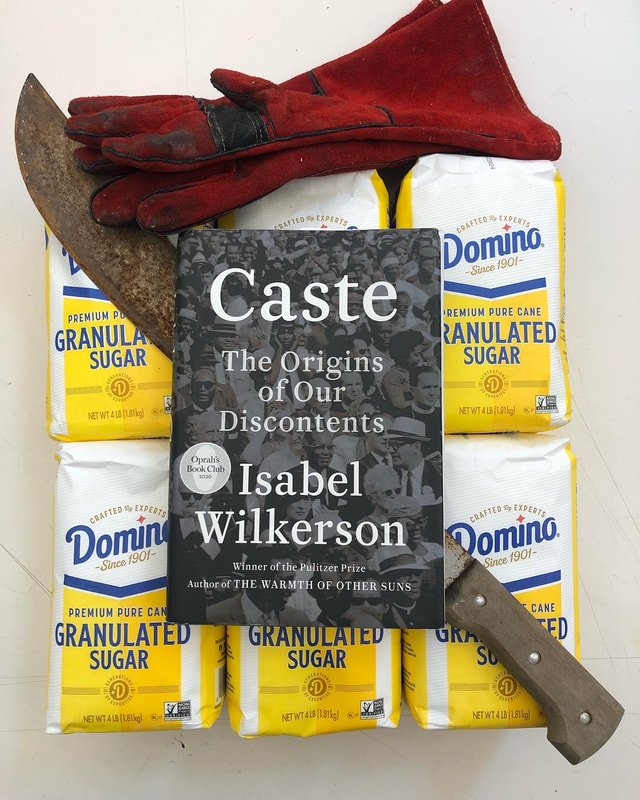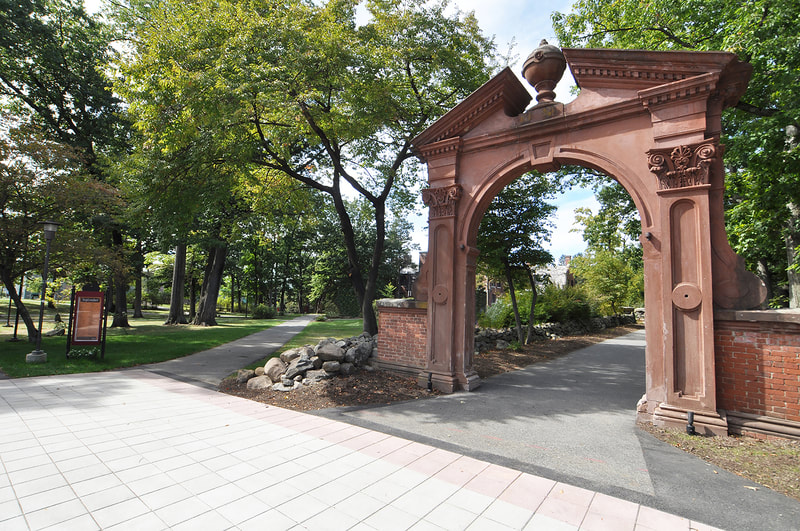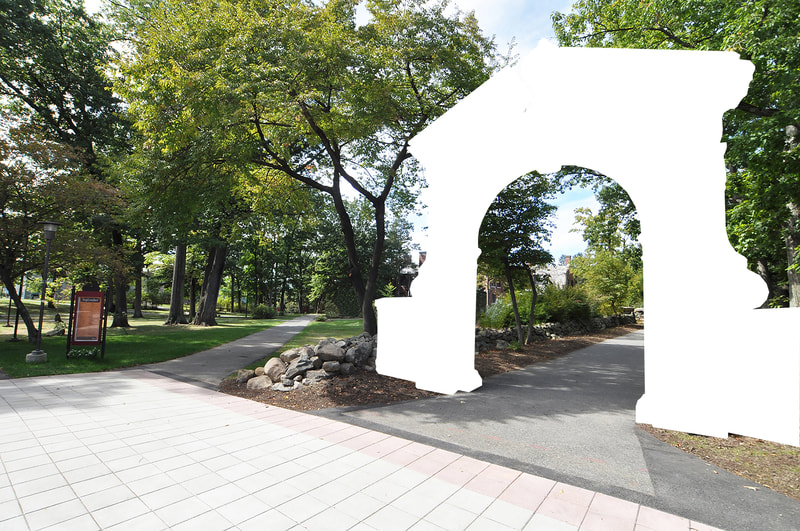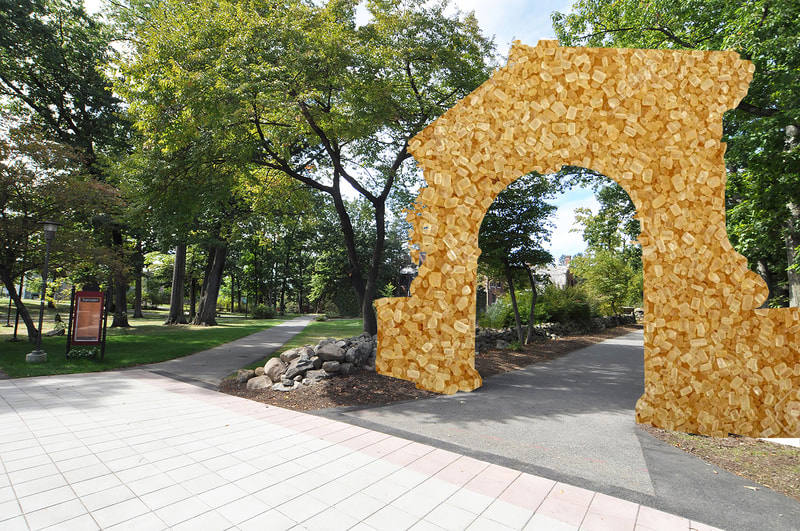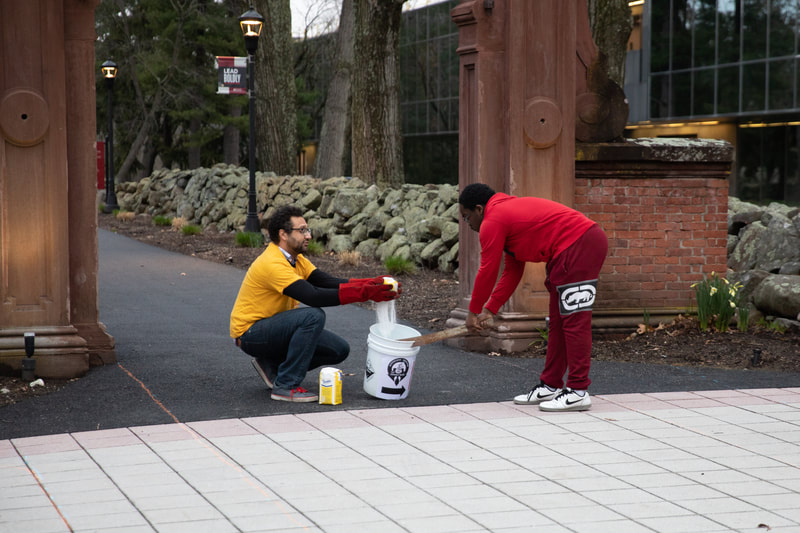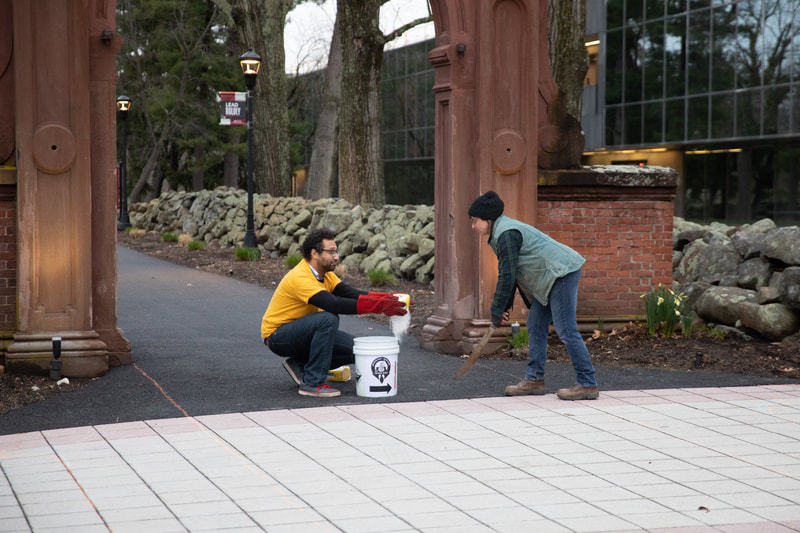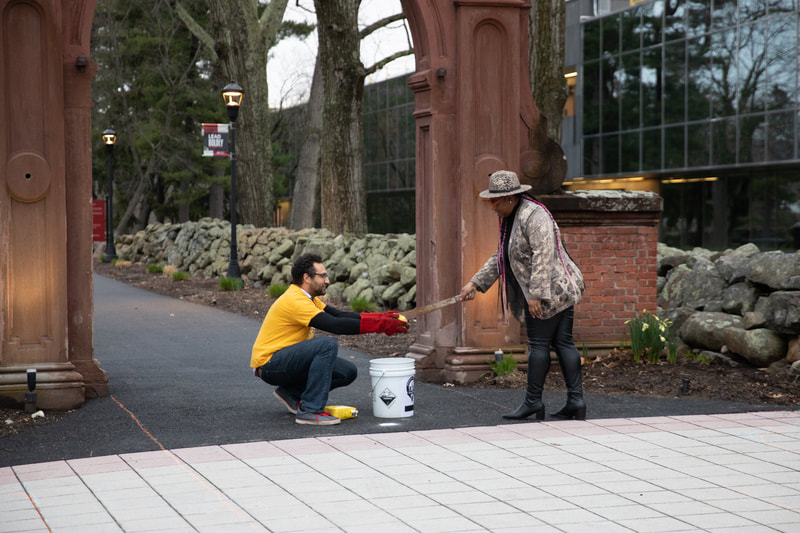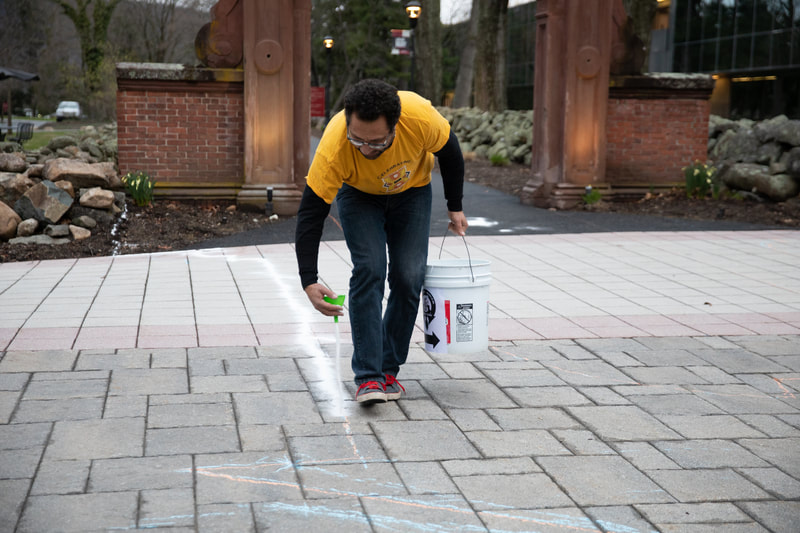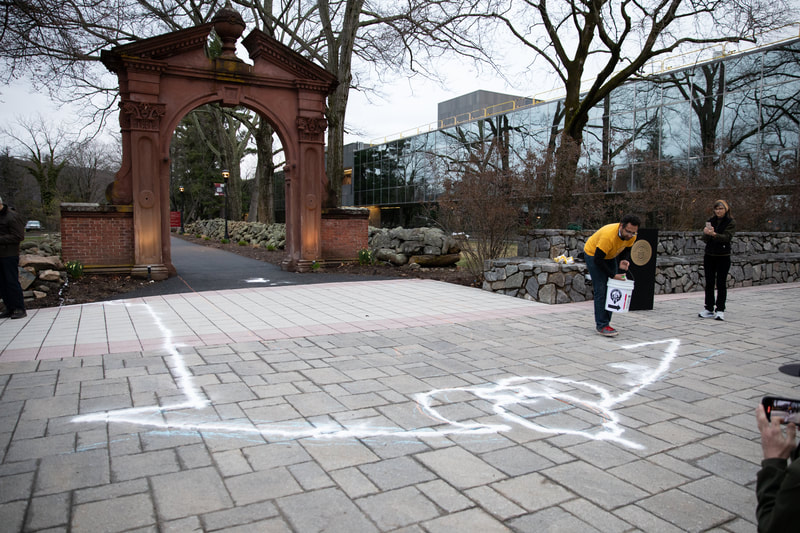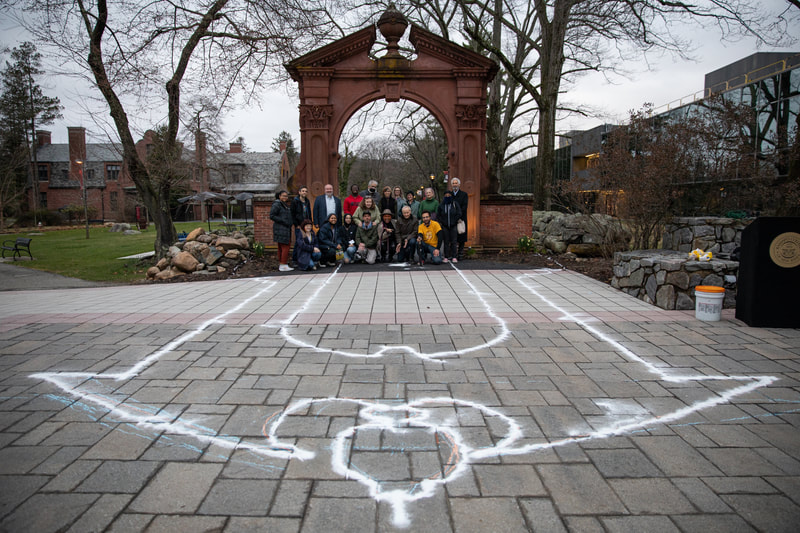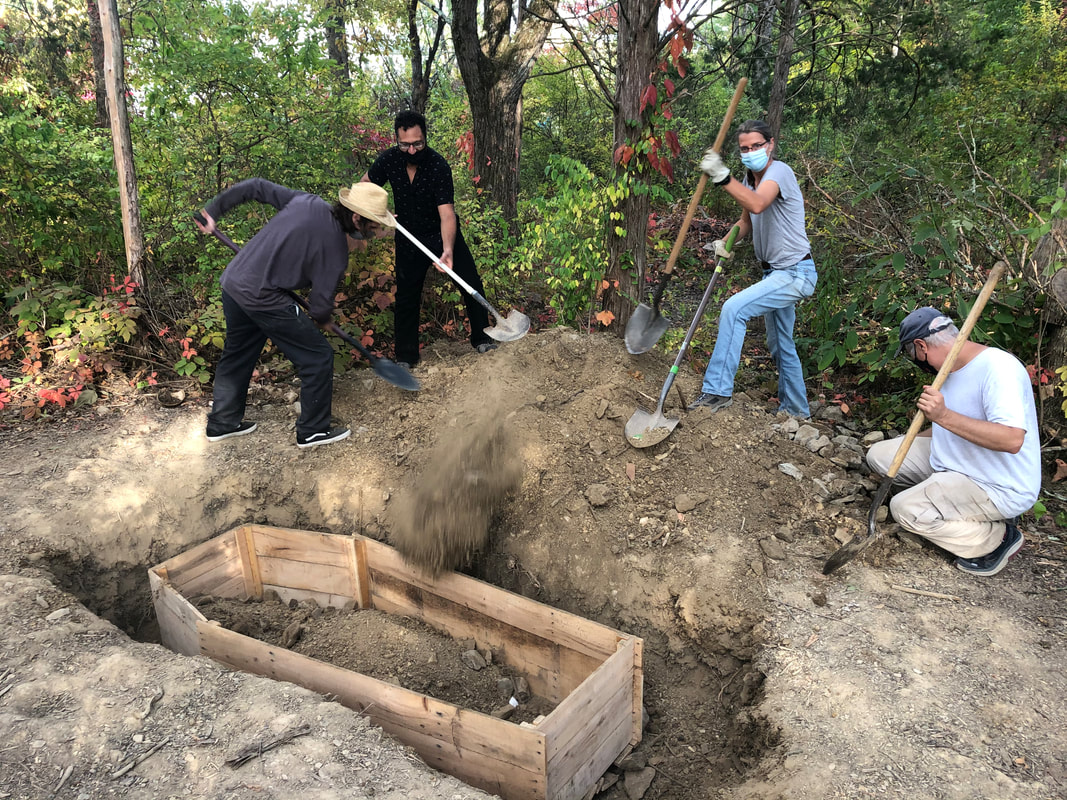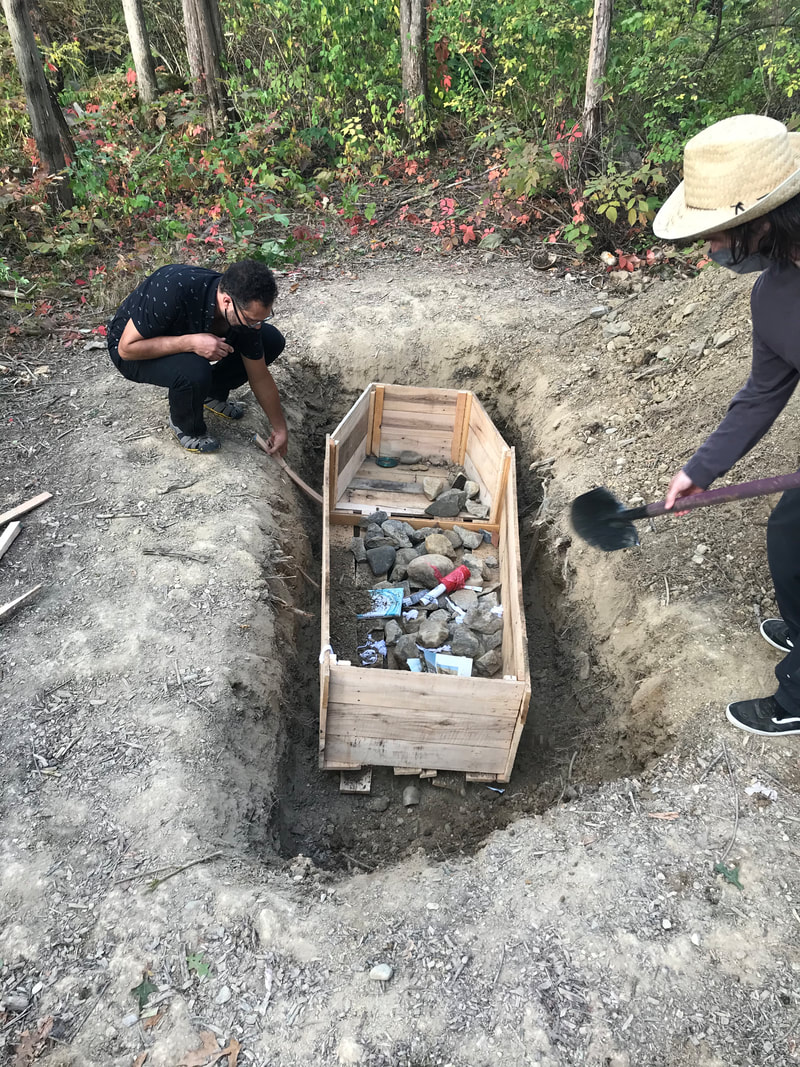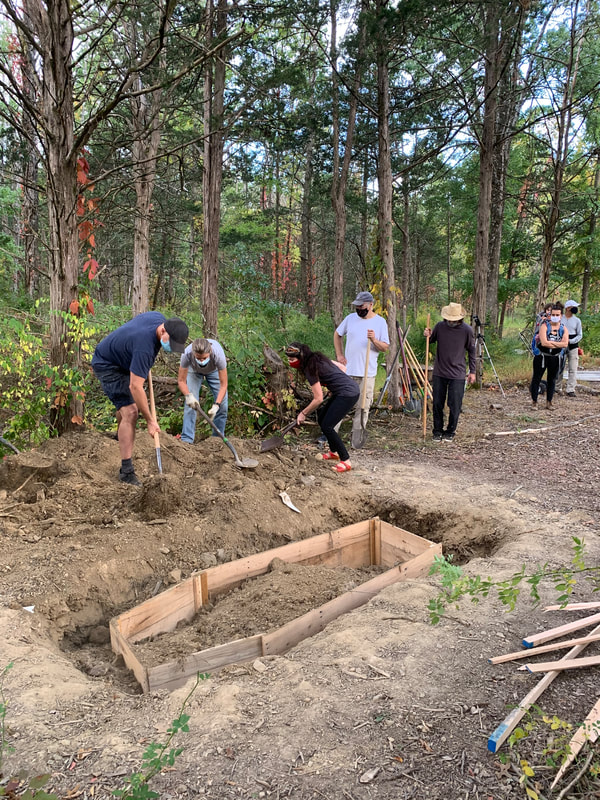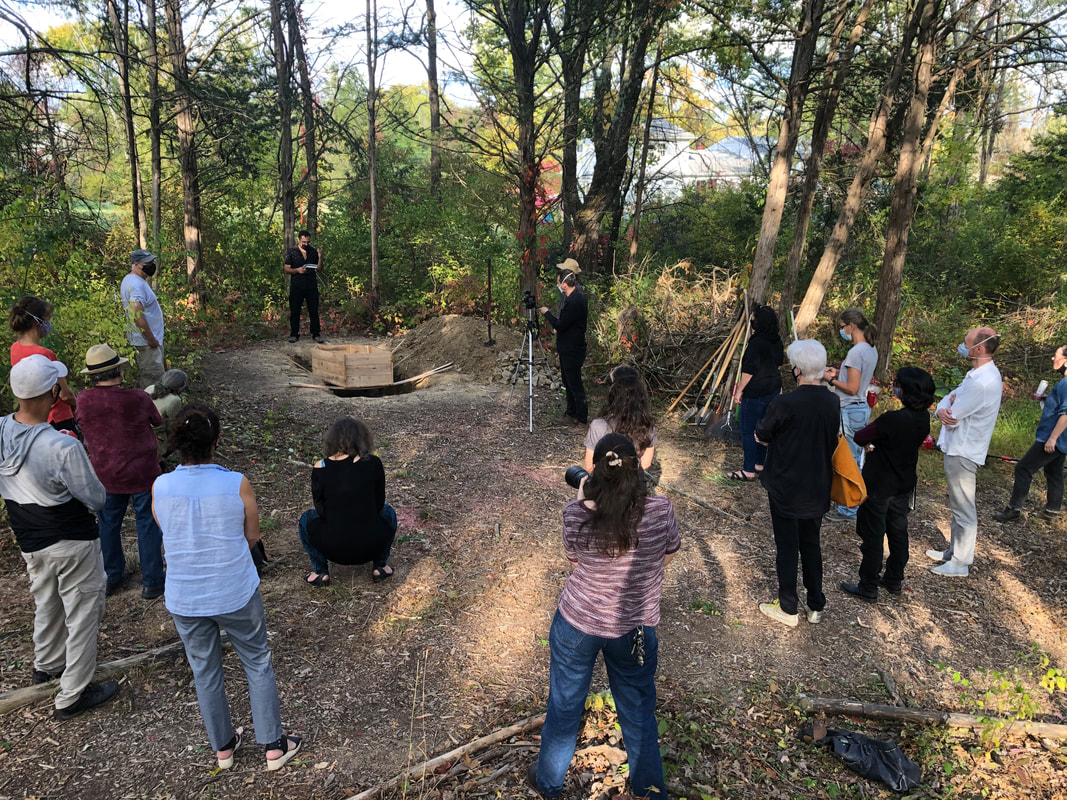"My roles as artist and educator are rooted in the same practice and purpose: to generate participatory action toward reparative forms of social justice and a culture of remembrance."
Jean-Marc has earned a reputation as a Reparative Consultant, guiding institutions in considering how they have historically benefited from the legacy of enslaved labor.
Ramapo College of New Jersey
Stolen Sugar; Sweetest Books
For “Stolen Sugar Makes the Sweetest Books”, Jean-Marc staged an outdoor performance during which he drew lines using sugar to outline the shadow cast by Ramapo College’s “Havemeyer Arch” onto the courtyard across the campus’s “C-Wing” entrance, marking the ties of America’s largest sugar refining family fortune to the legacy of an outsourced slave economy.
“Stolen Sugar Makes the Sweetest Books” identifies the “Havemeyer Arch” as a monument to the W. & F.C. Havemeyer Company’s sugar refining fortune that allowed Theodore Havemeyer to purchase the 300 acres on which Ramapo College stands today. When taking into consideration the gap in years between the abolition of slavery in the U.S. (1865) and on the island of Cuba (1888) where the Havemeyers sourced one hundred percent of their sugar, “Stolen Sugar Makes the Sweetest Books” seeks to say the unrefined part out loud: the reason some of America’s vastest family fortunes immeasurably grew after the Civil War was that enslaved labor could be found elsewhere.
“Stolen Sugar Makes the Sweetest Books” is one artist’s performance to symbolically memorialize this silent history, but it is also a proposal for what concrete, reparative actions involving Ramapo College’s Leadership, Black Student Union/Students of Caribbean Descent, and all relevant stakeholders toward Institutional Advancement could concretely look like. By launching a historically and ethically-based fundraising campaign, commemorative stones fabricated to replace select pavers in the courtyard area between the “Havemeyer Arch” and the entrance to “C-Wing” could be offered to donors to give to Ramapo College in memory of the countless lives of Africans kidnapped to work the cane fields in Cuba. These donations, publicly materialized in the very ground at Ramapo College’s campus, could create a “Sweetest Books” Scholarship Fund aimed at International Students from the Caribbean to attend Ramapo.
Colleges and Universities nationwide are recognizing the role the slave economy has played in their establishment. Ramapo College has an inspiring opportunity to acknowledge that the sweetness of the Havemeyers’ legacy is what has promised, and will continue to promise the sweetness of learning.
(With gratitude to Sydney Jenkins, Gallery Director, for the invitation to exhibit at the Kresge & Pascal Galleries, and Associate Prof. Jackie Skrzynski for the invitation to speak as Visiting Artist at the Sharp Theater at the Berrie Center for Performing and Visual Arts.)
“Stolen Sugar Makes the Sweetest Books” identifies the “Havemeyer Arch” as a monument to the W. & F.C. Havemeyer Company’s sugar refining fortune that allowed Theodore Havemeyer to purchase the 300 acres on which Ramapo College stands today. When taking into consideration the gap in years between the abolition of slavery in the U.S. (1865) and on the island of Cuba (1888) where the Havemeyers sourced one hundred percent of their sugar, “Stolen Sugar Makes the Sweetest Books” seeks to say the unrefined part out loud: the reason some of America’s vastest family fortunes immeasurably grew after the Civil War was that enslaved labor could be found elsewhere.
“Stolen Sugar Makes the Sweetest Books” is one artist’s performance to symbolically memorialize this silent history, but it is also a proposal for what concrete, reparative actions involving Ramapo College’s Leadership, Black Student Union/Students of Caribbean Descent, and all relevant stakeholders toward Institutional Advancement could concretely look like. By launching a historically and ethically-based fundraising campaign, commemorative stones fabricated to replace select pavers in the courtyard area between the “Havemeyer Arch” and the entrance to “C-Wing” could be offered to donors to give to Ramapo College in memory of the countless lives of Africans kidnapped to work the cane fields in Cuba. These donations, publicly materialized in the very ground at Ramapo College’s campus, could create a “Sweetest Books” Scholarship Fund aimed at International Students from the Caribbean to attend Ramapo.
Colleges and Universities nationwide are recognizing the role the slave economy has played in their establishment. Ramapo College has an inspiring opportunity to acknowledge that the sweetness of the Havemeyers’ legacy is what has promised, and will continue to promise the sweetness of learning.
(With gratitude to Sydney Jenkins, Gallery Director, for the invitation to exhibit at the Kresge & Pascal Galleries, and Associate Prof. Jackie Skrzynski for the invitation to speak as Visiting Artist at the Sharp Theater at the Berrie Center for Performing and Visual Arts.)
Burial for White Supremacy
Black lives matter when we bury white power. It is now unforgivably clear: equating greatness with whiteness is openly a mainstream political agenda. Again. It past time to tell neo-fascism to go back to the cesspool it came from. If your blood is mixed with hate, bury it in this soil. The nails and the coffin are ready at hand.
“Burial for White Supremacy” is a participatory performance project inviting audience members to dig a grave, carry a symbolic casket built of reclaimed wood, and cast stones or personal items in an act of symbolically disavowing the unmerited benefits of an inheritance based on stolen land and stolen labor. Black Lives Matter when we bury white power.
“With humble acceptance of God’s will, we announce the passing of White Supremacy, child of Manifest Destiny and Colonial Capitalism, relative to Orientalism and progenitor to slavery. Funeral service will be held at Unison Art Center on September 26th at 4pm. Graveside service and reception immediately following.”
“With humble acceptance of God’s will, we announce the passing of White Supremacy, child of Manifest Destiny and Colonial Capitalism, relative to Orientalism and progenitor to slavery. Funeral service will be held at Unison Art Center on September 26th at 4pm. Graveside service and reception immediately following.”
